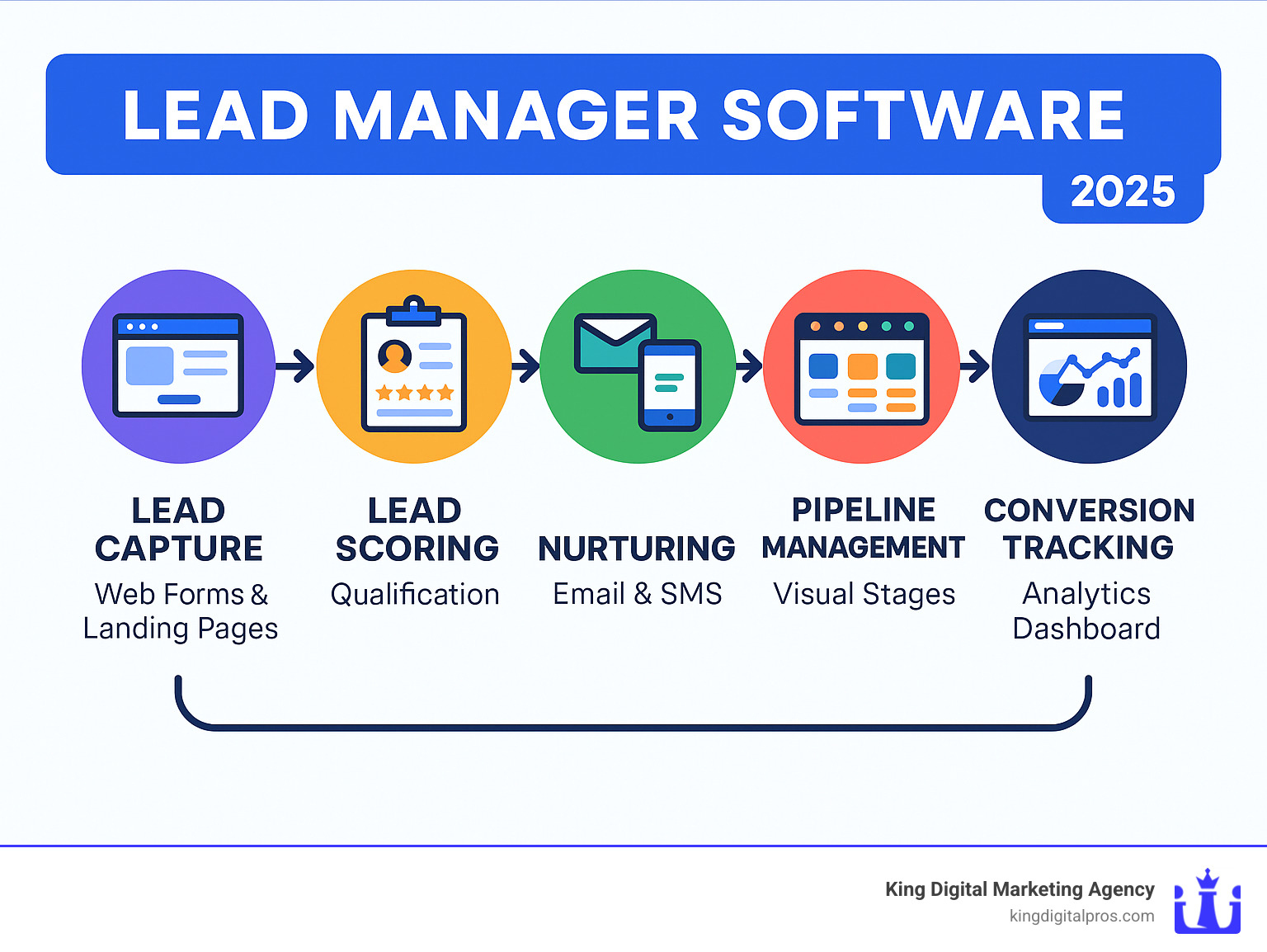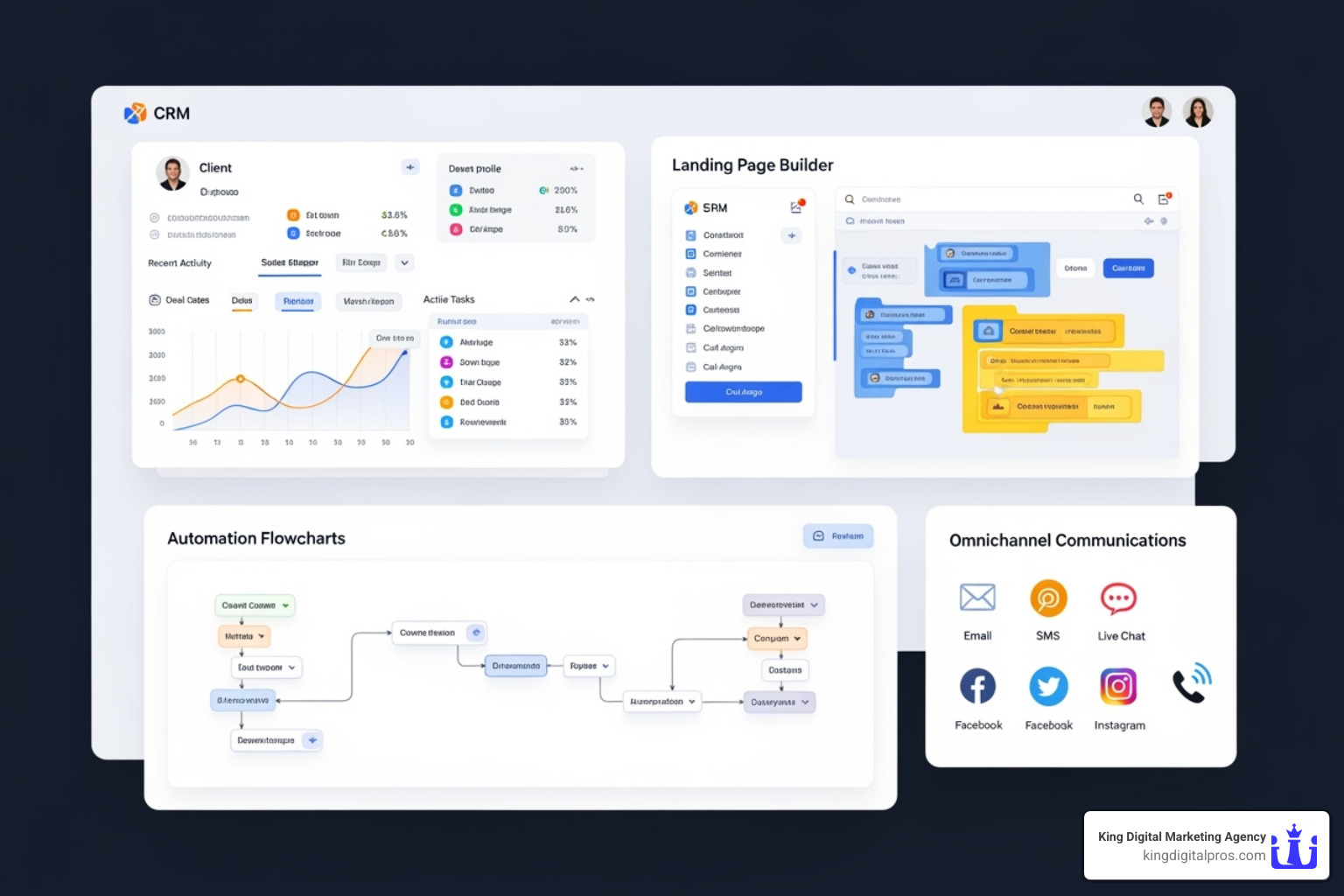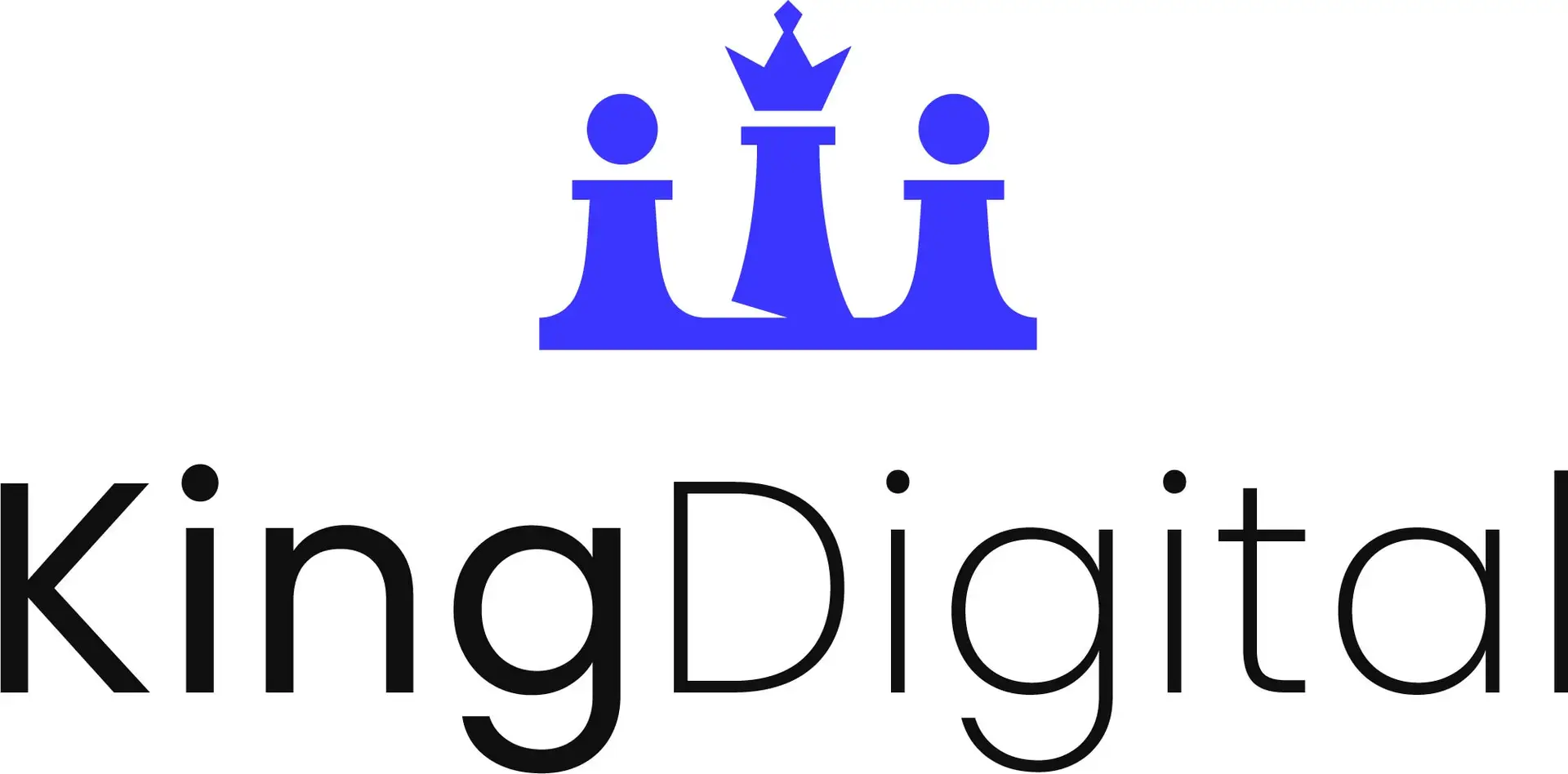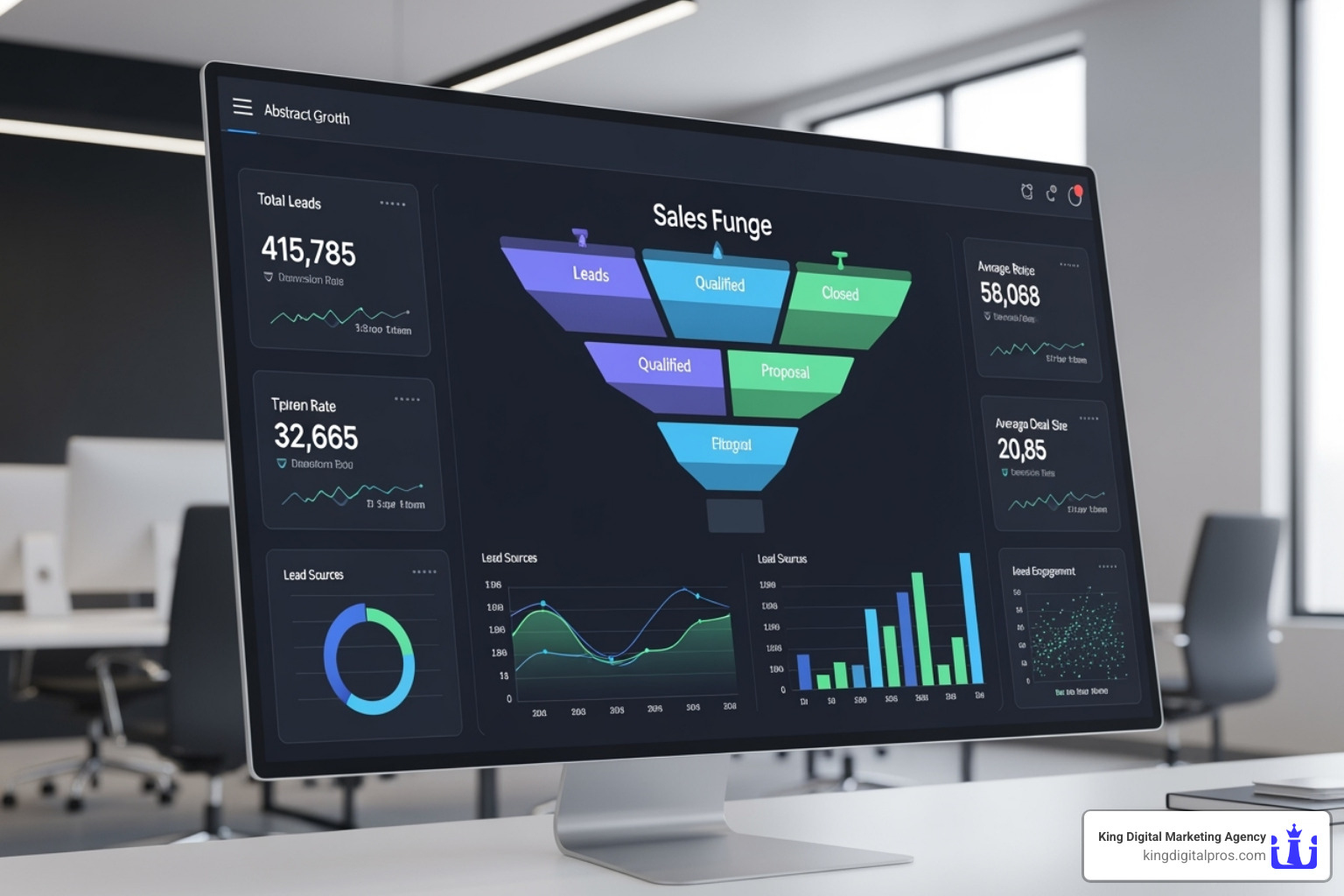Why Your Sales Funnel Needs Better Lead Management
Lead manager software helps businesses capture, organize, and nurture prospects through systematic tracking and automated workflows. Here’s what you need to know:
Key Functions:
- Lead Capture – Collect prospects from websites, forms, and campaigns
- Organization – Store and categorize leads in centralized databases
- Scoring & Prioritization – Rank leads based on engagement and fit
- Nurturing – Send targeted emails and follow-ups automatically
- Conversion Tracking – Monitor progress from prospect to customer
Popular Options:
- Free/Freemium: HubSpot, Brevo, MailerLite
- Small Business: Vtiger, Zoho CRM, Pipedrive
- Enterprise: Salesforce, Creatio, Zendesk Sell
- Specialized: Leadfeeder, OptinMonster, Chili Piper
Have you ever tried herding cats? According to Zapier’s research, managing leads without proper software feels exactly like that. Modern businesses lose valuable prospects when leads slip through manual processes or get buried in spreadsheets.
The numbers tell the story. Companies using lead management systems see:
- 93% increase in pipeline deals
- 21% higher average deal values
- 46% faster deal closure times
Research shows that inbound leads cost 61% less than outbound leads and close at 14.6% versus just 1.7% for traditional outreach. Yet many local businesses still rely on scattered notes, basic contact lists, and hope.
I’m Bernadette King, founder of King Digital Marketing Agency, and I’ve helped dozens of franchise owners and small businesses transform their sales processes with the right lead manager software. After years of testing platforms and watching clients struggle with manual lead tracking, I’ve identified the tools that actually move the needle for growing businesses.

Why Effective Lead Management Matters
Picture this: It’s Monday morning, and you’re staring at a jumbled mess of business cards, sticky notes with phone numbers, and three different spreadsheets that somehow all have different information about the same potential customer. Sound familiar?
This chaos is exactly why lead manager software has become essential for growing businesses. It’s the difference between playing a guessing game with your sales pipeline and having a clear roadmap to revenue growth.
Pipeline visibility changes everything. When you can see exactly where each prospect stands in their buying journey, you stop wondering and start knowing. Is Sarah from the dental practice ready to sign, or does she need more nurturing? Has the restaurant owner you spoke with last week gone cold, or is he just busy with the lunch rush?
With proper lead management, these questions get answered automatically. You’ll know which leads are hot, which need attention, and which might be better suited for a different service altogether.
The qualification process becomes your secret weapon. Not every lead deserves the same level of attention – and that’s perfectly okay. Some prospects are ready to buy today, others need three months of gentle nurturing, and some might not be the right fit at all. Industry data on CRM integrations shows that businesses using integrated systems can prioritize leads more effectively, focusing their energy where it counts most.
Here’s where the magic happens: revenue growth that you can actually measure. Remember those statistics from earlier? A 93% increase in pipeline deals isn’t just a nice number – it represents real businesses changing their bottom line. When leads stop falling through the cracks and your follow-up becomes consistent, deals close faster and at higher values.
Understanding your buyer journey becomes clearer too. Today’s customers don’t just call and buy anymore. They visit your website, read reviews, compare options, maybe visit again, then finally reach out. Lead manager software tracks this entire dance, helping you meet prospects exactly where they are in their decision-making process.
This is where our expertise at King Digital Marketing Agency really shines. We’ve seen how proper lead tracking services transform local businesses from reactive to proactive. Instead of hoping the phone rings, you’re nurturing relationships and guiding prospects toward the solutions they actually need.
The bottom line? Effective lead management turns your sales process from a wild guess into a predictable system. And in today’s competitive market, that predictability might just be your biggest advantage.
Best Lead Manager Software Picks
Choosing the right lead manager software can feel overwhelming, given the sheer number of options available. There’s no single “magic-bullet” solution, as Zapier insightfully points out. Instead, an effective system often involves a suite of specialized tools, custom to different stages of the lead management process and your specific business needs. Below, we’ll explore some of the best picks across various categories, helping you identify the right tools to boost your sales funnel.

Landing Page and Lead Capture Tools
The journey of a lead often begins with a compelling landing page or a well-placed web form. These tools are the digital gateways through which prospects enter your sales funnel. They are designed to capture interest and collect vital contact information efficiently.
- Carrd: For businesses seeking simplicity and extreme affordability, Carrd stands out. Our research highlights that Carrd paid plans start at an incredibly low $19/year, with robust free core features available. It’s lauded as one of the best landing page builders, especially given its low cost, making it perfect for quickly launching campaigns or capturing leads without a hefty investment.
- Web Forms: Most lead manager software or marketing automation platforms offer built-in web form capabilities. These allow you to create customizable forms for lead generation, add qualifying questions, and even auto-import leads directly into your CRM. This automation is crucial for ensuring that new leads are immediately captured and don’t get lost.
- A/B Testing: The best landing pages aren’t built once and forgotten. Continuous optimization through A/B testing is vital. This involves creating multiple versions of your landing page or web form and testing elements like headlines, calls-to-action (CTAs), and page layouts to see which performs best. This iterative process allows us to constantly refine our lead capture strategies and boost conversion rates.
For more insights into optimizing your online presence for better lead capture, check out our guide on Conversion Optimization.
Small-Business Lead Manager Software
Small businesses need solutions that are powerful yet easy to use and, crucially, affordable. They often require an all-in-one approach that covers CRM functionalities without the complexity or price tag of enterprise-level systems.
- Vtiger: A top all-in-one CRM for small businesses, Vtiger offers an accessible starting price of $12/month (billed annually). It excels at organizing, prioritizing, and engaging prospects in one platform with automated assignments and follow-ups, focusing on usability for quick team adoption. You can find more details in this industry review of Vtiger.
- Zoho CRM: Highly rated for its comprehensive capabilities, Zoho CRM provides a systematic process for qualifying, analyzing, and nurturing leads. It features smart web forms, AI-powered lead enrichment, and automated distribution, managing the entire lead lifecycle with strong omnichannel communication tools.
- Pipedrive: Ideal for sales-focused SMBs, Pipedrive offers a visual, drag-and-drop pipeline. It helps declutter lead lists and uses AI for lead enrichment and scoring, ensuring teams focus on activities that move deals forward.
These platforms prioritize usability and affordability, ensuring that small businesses can implement robust lead management processes without needing extensive IT support or breaking the bank.
Enterprise Lead Manager Software
For large organizations with complex sales processes, extensive data needs, and multiple teams, enterprise-level lead manager software offers unparalleled customization, scalability, and advanced features, often leveraging AI.
- Salesforce Sales Cloud: Salesforce Sales Cloud remains a dominant force in the enterprise CRM space. Our research shows that its pricing begins at $25/user/month, and over 100,000 companies globally rely on it for their sales operations. It’s widely considered most suitable for large enterprises due to its immense flexibility and complexity, allowing for deep customization to fit virtually any sales workflow. Salesforce provides robust tools for pipeline management, lead scoring, and automated lead assignments, all backed by powerful analytics.
- Customization: Enterprise solutions like Salesforce offer extensive customization options, allowing businesses to tailor every aspect of the lead management process to their unique needs. This includes custom fields, workflows, reporting, and integrations with a vast ecosystem of other business applications.
- Scalability: These platforms are built to handle massive volumes of leads and users, making them ideal for companies with large sales teams and ambitious growth plans. They can scale effortlessly as your business expands, ensuring your lead manager software grows with you.
- AI Insights: Artificial intelligence plays a significant role in enterprise-level lead manager software. Features like AI-driven lead scoring, predictive analytics, and automated next-best-action suggestions help sales teams prioritize effectively and optimize their efforts for higher conversion rates. For a deeper dive into the value of CRM in large organizations, you might find this scientific research on CRM value insightful.
Free and Freemium Lead Management Platforms
Starting small or testing the waters with lead manager software doesn’t mean sacrificing quality. Many excellent platforms offer free or freemium tiers that provide substantial functionality, allowing businesses to get started without immediate financial commitment.
- HubSpot: HubSpot is a phenomenal one-stop shop for marketing and sales, offering a free-forever CRM that’s incredibly robust. Our research confirms that HubSpot’s free plan includes centralized prospect organization, automated lead assignments, custom lead scoring, and full visibility into the lead journey. While paid plans open up more advanced features, the free CRM is a powerful tool for small businesses looking to manage leads effectively. It offers a great way to understand how a comprehensive system works before committing to a larger investment. For more on optimizing your website for conversions and understanding how free tools play a part, explore our resource on Is Your Website Converting?.
- Brevo (formerly Sendinblue): Brevo offers a free plan that allows for up to 300 emails per day, making it a strong contender for businesses focusing on email marketing as a core part of their lead nurturing strategy. Paid plans start from an affordable $8/month. Brevo combines email marketing with CRM, SMS marketing, and chat, providing a multi-channel approach to lead engagement even on its free tier.
- MailerLite: For businesses primarily focused on email marketing for lead nurturing, MailerLite provides a generous free plan that supports up to 1,000 subscribers and allows for 12,000 emails per month. This is ideal for startups and small businesses to build their email lists and start sending targeted campaigns without upfront costs. It’s a great example of a freemium model that enables you to scale up as your needs grow.
These freemium tiers are perfect for experimenting with lead manager software functionalities, understanding your team’s needs, and proving ROI before investing in more comprehensive paid plans.
Multi-Channel Engagement and Nurture Suites
Effective lead management extends far beyond just tracking. It involves engaging with leads across various channels and nurturing them with personalized content until they are ready to convert. Multi-channel engagement and nurture suites facilitate this holistic approach.
- Mailchimp: Known for email marketing, Mailchimp is now a comprehensive platform with CRM features. It enables targeted campaigns and audience segmentation, making it great for businesses focused on email nurturing. You can learn more about their offerings in this industry overview.
- SimpleTexting: For direct engagement, SimpleTexting offers a straightforward platform for SMS marketing campaigns and automated responses, ensuring your messages get seen.
- Dialpad: VoIP software like Dialpad integrates call management into your workflow, allowing teams to log calls and track outcomes within the lead management system.
- Webinars (e.g., Demio): Platforms like Demio are effective for generating and nurturing B2B leads through live and on-demand events, with integrations that automatically capture attendee data.
- Personalization: The key to multi-channel success is personalization. Nurture suites enable lead segmentation based on behavior and interests, allowing you to deliver targeted messages across channels. This builds trust and moves prospects closer to conversion, avoiding generic, ineffective outreach.
How to Select and Implement Lead Manager Software
Choosing and implementing the right lead manager software is a strategic decision that can significantly impact your business’s efficiency and growth. It’s not just about picking the flashiest tool; it’s about finding the best fit for your unique needs, budget, and existing workflows. We’ve found that a thoughtful approach to selection and a careful implementation strategy are critical for success.

Key Evaluation Criteria for lead manager software
When evaluating different lead manager software options, we focus on several core criteria to ensure the chosen solution aligns perfectly with a business’s objectives:
- Pricing: Costs can vary wildly, from free tiers to hundreds of dollars per user per month. It’s essential to look beyond the advertised price and consider the total cost of ownership, including potential add-ons, implementation fees, and training. We always advise assessing whether the features offered justify the investment, keeping in mind that free plans can be a great starting point to test core functionalities before upgrading.
- Scalability: Will the software grow with your business? A solution that works for 50 leads today might buckle under the weight of 500 or 5,000 leads tomorrow. Look for platforms that offer tiered pricing and features that can accommodate increasing lead volumes, more users, and expanding functionalities as your business scales.
- Automation Breadth: The true power of lead manager software lies in its automation capabilities. Evaluate how extensively it can automate tasks like lead capture, lead scoring, routing, follow-up emails, and data entry. The more repetitive tasks it can handle, the more time your sales and marketing teams can dedicate to high-value activities.
- Support: Good customer support can be a lifesaver during implementation and ongoing use. Look for vendors that offer responsive support channels (phone, email, chat), comprehensive knowledge bases, and perhaps even dedicated account managers for higher-tier plans. Understanding their onboarding process and how much support they provide is crucial.
Integrating lead manager software with existing stack
A standalone lead manager software is useful, but its true power is releaseed when it seamlessly integrates with your existing business tools. This creates a unified ecosystem where data flows freely, eliminating silos and improving efficiency.
- Zapier: As noted in our research, platforms like Zapier can act as a central hub, connecting your lead manager software with hundreds of other applications, from email marketing tools to accounting software. This AI orchestration allows you to automate complex workflows across different apps, ensuring data synchronization and triggered actions based on lead behavior. For example, a new lead captured via a web form could automatically be added to your CRM, trigger a welcome email, and create a task for a sales rep-all without manual intervention.
- APIs (Application Programming Interfaces): Many modern lead manager software solutions offer robust APIs, allowing for custom integrations with proprietary systems or specialized tools not covered by standard connectors. This provides ultimate flexibility in building a connected tech stack.
- Data Sync: The goal of integration is seamless data synchronization. This means that information updated in one system (e.g., a lead’s status in your CRM) is automatically reflected in another (e.g., your marketing automation platform). This ensures that your teams are always working with the most current information, leading to more accurate targeting and personalized interactions. Understanding the ROI of your marketing efforts, including how integrations contribute, can be calculated using tools like our Marketing ROI Calculator.
Common Implementation Pitfalls
While the benefits of lead manager software are clear, the implementation process isn’t always smooth sailing. Being aware of common pitfalls can help you steer them successfully:
- Data Migration: Moving data from old systems can be complex. Inaccurate migration causes significant issues, so plan for thorough data cleansing and a structured process.
- User Adoption: Software is useless if your team won’t use it. Overcome resistance with comprehensive training, by highlighting individual benefits, and choosing an intuitive platform. As our research notes, some platforms can be “trickier to learn for less tech-savvy agents.”
- Security: Lead data is sensitive. Choose software with robust security, data encryption, and compliance with privacy regulations like GDPR or CCPA.
- Change Management: Implementing new software requires clear communication about the “why.” Involve your team, provide ongoing support, and consider a phased rollout to ease the transition and improve onboarding speed, as highlighted by the latest research on onboarding speed.
A successful implementation isn’t just about installing software; it’s about integrating a new way of working into your business’s culture. For specific guidance on optimizing your lead management process through scoring, you can always consult our Lead Scoring Services.
Frequently Asked Questions about Lead Manager Software
We get a lot of questions from business owners who are curious about lead manager software but aren’t quite sure where to start. Let’s tackle the most common ones that come up in our conversations with clients.
What is lead manager software?
Think of lead manager software as your digital sales assistant that never takes a coffee break. It’s designed to help businesses handle potential customers smoothly from that very first “hello” all the way through to “yes, I’ll buy.”
Our research shows that good lead manager software acts like a well-organized friend who captures every lead from your website forms, social media, and phone calls, then organizes all that information so nothing gets buried in email threads or sticky notes. It gets smarter by qualifying leads through scoring systems that help you focus on the prospects most likely to buy, while nurturing others with automated emails and messages that feel personal and timely.
The really clever part is how it routes qualified leads to the right person on your team at exactly the right moment, then measures everything so you can see what’s working and what needs tweaking. Essentially, it transforms the often chaotic process of managing prospects into a smooth, predictable system that actually helps you close more deals.
Is lead manager software different from a CRM?
This question comes up constantly, and honestly, the lines can get pretty blurry. Here’s how we explain it to our clients.
Lead manager software focuses specifically on the courtship phase – it’s all about attracting, capturing, and nurturing potential buyers who haven’t committed yet. Think of it as specialized dating advice for your business relationships.
A Customer Relationship Management (CRM) system is more like a complete relationship management toolkit. While it includes lead management features, it also handles everything that happens after someone becomes a customer – support tickets, purchase history, renewal reminders, and long-term relationship building.
As our research notes, “Lead management software is used specifically for potential buyers. A customer relationship management (CRM) tool is software that’s used to manage existing customers.” The overlap happens because the best CRMs include robust lead management modules, making them one-stop shops for businesses that want everything under one roof.
If you’re primarily focused on filling your sales pipeline with qualified prospects, dedicated lead manager software might be your sweet spot. But if you need to manage the entire customer journey from stranger to loyal advocate, a comprehensive CRM makes more sense.
How do I measure ROI from lead manager software?
Measuring ROI from your lead manager software involves tracking key metrics that impact your bottom line. The first benefits are typically increased lead volume and quality, as the software helps capture and qualify prospects more effectively.
Pipeline improvements follow, with companies often seeing a 93% increase in pipeline deals. This translates directly to revenue growth, including 21% higher average deal values and 46% faster deal closure times, which improves cash flow and team capacity.
Cost efficiency is another major factor. With inbound leads costing 61% less and converting at a much higher rate (14.6% vs. 1.7% for outbound), the financial benefits are clear.
To calculate your ROI, compare your total software costs (subscription, setup, training) against these measurable gains. Most businesses moving from manual systems see a positive return within a few months.
Conclusion
Choosing the right lead manager software transforms a chaotic lead-chasing operation into a streamlined, revenue-generating machine. The right tools ensure that valuable prospects no longer slip through the cracks.
At King Digital Marketing Agency, we see the power of combining local visibility with smart lead management. We help businesses get noticed by optimizing their local presence, and the right software ensures those hard-earned leads are nurtured into lasting customer relationships. It’s like having a sales assistant who never forgets a follow-up.
Modern lead manager software is flexible, with options from HubSpot’s free CRM to Salesforce’s enterprise suite. The key is to start with a tool you’ll use consistently. Don’t get paralyzed by options; the best solution is one that fits your current needs and can evolve with you.
Your next steps are simple:
- Assess where your leads currently get lost.
- Define what success looks like for your business.
- Test platforms using free trials or demos before you commit.
- Plan for team adoption and integration with existing workflows.
- Measure your results from day one to prove ROI and guide optimizations.
Ready to turn lead management into a competitive advantage? Our lead tracking services can help you capture and convert more leads into the loyal customers your business deserves. Effective lead management is about creating genuine connections that drive real growth.


